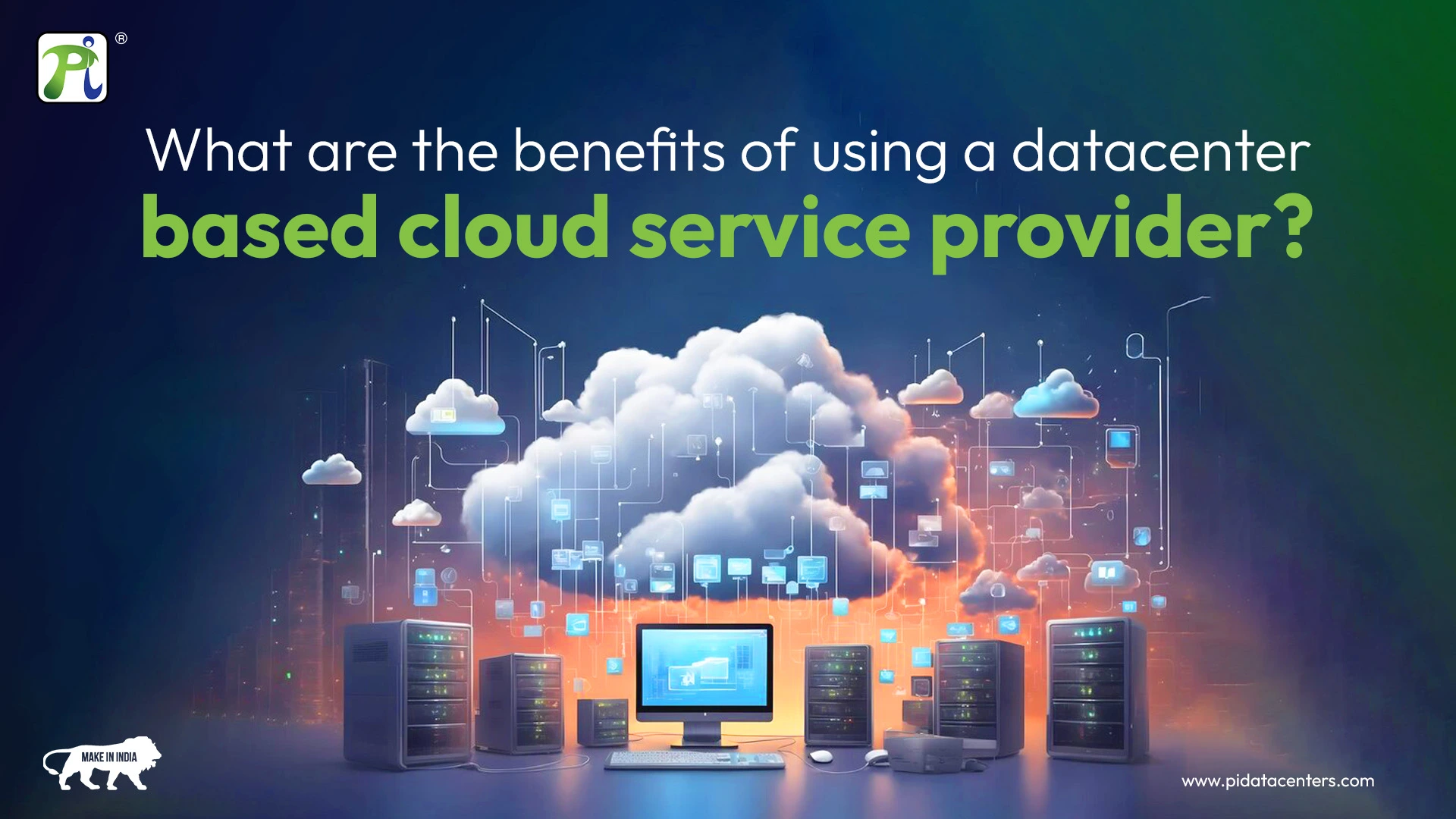We Will Get Back To You As Soon As Possible


In the modern era, businesses heavily rely on technology to optimize their operations, boost productivity, and encourage innovation. Cloud computing has emerged as a transformative force, reshaping how businesses handle their data and applications. Yet, the true power of cloud services emerges when combined with data centers. In this article, we will delve into the symbiotic relationship between cloud providers and data centers, exploring the manifold technical and business advantages they bring to businesses.
Cloud computing entails delivering a myriad of services—including storage, databases, servers, networking, software, analytics, and intelligence—over the internet. In contrast, a data center is a physical facility designed to house computer systems and associated components, encompassing telecommunications and storage systems. Cloud providers rely on data centers to host and manage their services, guaranteeing secure and seamless access for businesses and individuals.
While cloud computing represents a service, a data center is a tangible facility. Cloud services find their home within data centers, yet the crux of the disparity lies in accessibility and management. Cloud services offer remote access via the internet, enabling users to connect from anywhere. Conversely, data centers, despite housing the necessary hardware, might not provide the same level of accessibility and convenience as cloud services, emphasizing the distinctive roles they play in the digital landscape.
The Indian data center sector is dynamic, with impressive growth and substantial government support. India has 138 data centers and approximately 1570 cloud service providers (Google) as of 2023. Most of them own data centers, and others are hosted, ensuring lower latency, enhanced performance, and compliance with local regulations.
Cloud providers and their data centers guarantee uninterrupted services through high availability measures. These facilities boast redundant systems, backup power supplies, and failover mechanisms. If a server or system fails, traffic seamlessly redirects to backup systems, minimizing downtime and ensuring continuous service availability.
Data centers owned by cloud providers are meticulously designed for scalability. They can effortlessly scale resources up or down in response to demand fluctuations. This adaptability empowers businesses to manage changing workloads effectively, ensuring optimal performance without overprovisioning or wasting resources during periods of low demand.
Data centers prioritize security by employing advanced protocols that guard against unauthorized access, data breaches, and cyberattacks. These measures encompass physical security, biometric access controls, surveillance cameras, and encryption protocols. Cloud providers make substantial investments in security to protect the infrastructure and the data stored within their facilities.
Cloud providers with data centers implement redundant systems and backup solutions to mitigate data loss during hardware failures or natural disasters. Data is often replicated across multiple servers and geographic locations, ensuring operational continuity even if one location experiences an outage. This redundancy strengthens disaster recovery capabilities, minimizing data loss and downtime during unforeseen events.
Data centers are meticulously designed to optimize resource utilization, including power, cooling, and space. Cloud providers streamline their infrastructure to maximize resource efficiency, reduce energy consumption, and minimize the environmental impact. This efficiency not only cuts operational costs but also aligns with sustainability goals, promoting eco-friendly practices.
Cloud providers strategically position their data centers in various regions, offering fast and low-latency connectivity to end-users. Proximity to data centers minimizes data travel time, ensuring swift access to applications and services. Low-latency connections are critical for real-time applications, video streaming, online gaming, and other latency-sensitive services.
Data centers operated by reputable cloud providers adhere rigorously to industry standards and regulatory requirements. These facilities are often certified for compliance with regulations such as GDPR, HIPAA, SOC 2, and more. Storing data in compliant data centers guarantees businesses fulfill legal obligations concerning data protection and privacy.

Cloud services provided by data centers liberate businesses from hefty investments in physical infrastructure, maintenance, and manpower. Embracing scalable, pay-as-you-go models reduces capital expenditure and ensures predictable budgeting. This cost-efficiency empowers businesses to redirect resources toward other strategic initiatives, enhancing operational efficiency.
By delegating IT infrastructure management to cloud service providers, businesses can concentrate on their fundamental strengths and strategic objectives. IT staff can channel their efforts into developing innovative solutions and refining business processes, unburdened by the complexities of maintaining and overseeing physical servers and data centers.
Strategically positioned data centers worldwide enable effortless global expansion for businesses. Cloud providers maintain a robust network of servers across diverse regions, facilitating the efficient delivery of content and services to international markets. This expansive global reach nurtures growth opportunities and elevates the company's market presence on a global scale.
Cloud services foster seamless collaboration among employees, transcending geographical barriers. Centralized storage in secure data centers enables employees to access files, documents, and applications from any location, promoting teamwork and elevating productivity. Additionally, cloud-based services support mobile workforces, empowering employees to work remotely and stay connected.
Cloud providers with dedicated data centers offer robust disaster recovery solutions. In the event of data loss or system failures, businesses can swiftly recover their data and applications from backup systems, minimizing downtime. This heightened business continuity ensures uninterrupted operations, even during unforeseen events, enhancing the business's resilience.
Esteemed data centers meticulously adhere to rigorous security standards and regulatory mandates. Storing sensitive data in these compliant facilities ensures businesses fulfill their legal and industry-specific obligations. This adherence not only shields the business from legal repercussions but also fortifies customer trust and confidence in data security, establishing a robust foundation for long-term relationships.
Cloud services empower businesses to explore novel ideas and innovations, unrestricted by the limitations of physical infrastructure. Companies can readily embrace cutting-edge technologies, expand services, and implement inventive solutions. This adaptability enables businesses to swiftly respond to market demands and evolving customer requirements, allowing them to maintain a competitive edge in a dynamic business landscape.
Cloud providers with dedicated data centers often invest in eco-friendly technologies and sustainable practices. Through the utilization of energy-efficient infrastructure and optimal resource management, these providers actively contribute to environmental conservation efforts. Collaborating with environmentally responsible providers not only aligns businesses with corporate social responsibility initiatives but also enhances their reputation as environmentally conscious organizations committed to a greener, more sustainable future.
In a nutshell, the synergy between cloud providers and data centers has transformed the business landscape, enabling organizations to thrive in the digital era. By leveraging the technical robustness of data centers and the flexibility of cloud services, businesses can streamline their operations, reduce costs, enhance security, and achieve sustainable growth. As cloud computing continues to evolve, businesses must recognize the invaluable contributions of data centers in maximizing the potential of cloud services, ensuring a competitive edge in an increasingly technology-driven world.
Questions? We're here to help.
©2026 Pi DATACENTERS® Pvt. Ltd. All rights reserved
